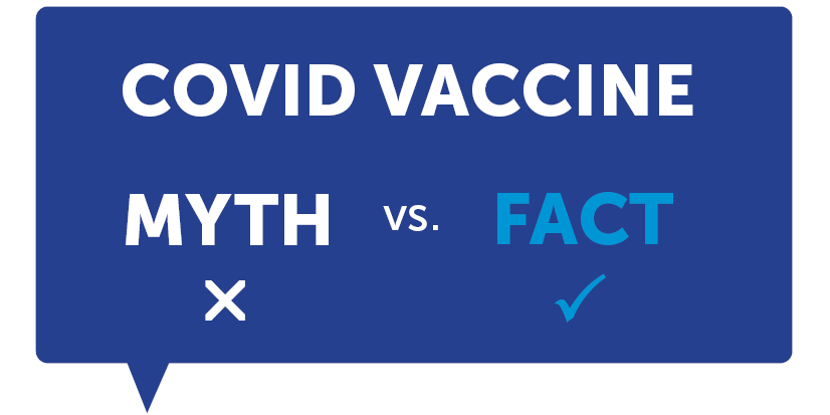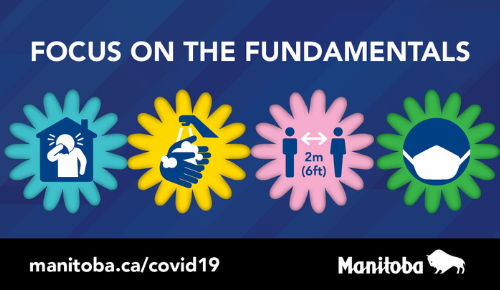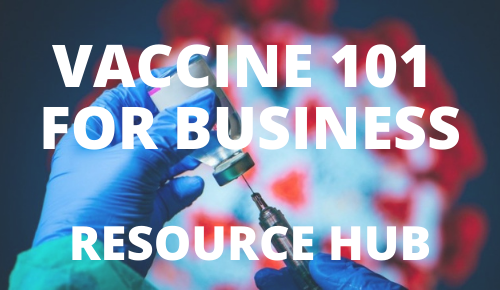
Whether by staff meetings, emails or casual one on one conversations, employers have countless touchpoints every day to speak with their employees about vaccines. The choice to get vaccinated is ultimately with the individual, but the conversations you have will affect not only your employees but also the information they share with their friends and family about vaccines.
These are the top tips for talking to your employees, which have been adapted from the Health Action Alliance:
- Listening Is Key: You need to have a conversation with your staff rather than a debate. Their decision to get vaccinated is theirs to make, which should always be acknowledged. Focus on being inviting and respectful and encourage them to look at information from respected sources.
- Lead with Empathy: It is important to acknowledge people’s concerns given it has been a difficult time for Canadians during the pandemic. It is okay for people — even you — to have questions about vaccines given the rate at which news changes and the wide number of voices in media and social media. Do not be condescending. Instead, support your staff taking time off for their vaccination or helping their family members.
- Facts about Safety Matter: Speak in plain language with people. Provide facts from reputable sources but don’t make up what you don’t know or use information from unreputable sources, particularly on social media. You also cannot provide medical advice to people’s unique health circumstances.
- Be Authentic: Share why you have decided to get vaccinated and why it is important for you and your family.
There are active ways employers can help their workforce get vaccinated since it is ultimately the collection of individual and company-level decisions that make a difference. Depending on your company’s financial capacity, there are several practical things your company can do to help your employees get vaccinated:
- Offer paid time off to any employee to get vaccinated. Potentially as much as four to six hours depending where vaccine clinics are located.
- Provide a transportation voucher (i.e. Uber/Lyft gift card, bus pass) to help cover your employees’ transportation costs to and from a vaccine site.
- Reimburse the employees’ childcare expenses during their vaccine appointments up to a certain amount.
- Offer internet access or language support services to help employees schedule their appointment when it becomes available.
- Provide information to your employees on the local public health or provincial vaccine timelines via email or printouts on a staff board in a common area.
- Offer paid leave of one to two days if needed after vaccination.
Companies should also start thinking about how to appropriately collect vaccine KPIs amongst their workforce while respecting the privacy of their employees. One option could be undertaking voluntary surveys to understand whether their workforce has received one or two doses of the vaccine, if they intend to receive the vaccine or if they prefer to not disclose.
It is also critical to manage expectations for those who get vaccinated with their first or second dose. You should ensure your employees can expect public health guidance to continue to focus on handwashing, masks and physical distancing. This will help manage expectations and reduce any issues with workplace tension between those who are vaccinated and those who are not.
These are the key messages that will support your ability to have conversations with your employees about COVID-19 vaccines in a workplace context.

COVID-19 Vaccines are Safe and they Work
- There are multiple COVID-19 vaccines that have been authorized by Health Canada, which is the government agency that approves all health products before they can be distributed to Canadians. All vaccines available in Canada have met rigorous testing standards, including studies with diverse groups of people of various ages, races and ethnicities.
- Vaccines teach your immune system how to recognize and fight the virus that causes COVID-19 without having to get sick or put yourself at risk of severe illness and death.
- Getting vaccinated is a much safer way to build protection than getting the disease. COVID-19 can have life-threatening complications, and there is no way to know how COVID-19 will affect you. If you get infected, you could spread the disease to friends, family, coworkers and customers.
- You may have some side effects after getting vaccinated. That’s a normal sign that your body is building protection — and they should go away within a few days. Your arm may be sore or swollen. You may also feel tired, have a headache, fever or chills. This does not mean you have COVID-19. COVID-19 vaccines do not put a live virus in your body.
- Vaccines are being administered by trained health professionals. You might be offered a vaccine that requires two doses, given several weeks apart, while other people might be offered a single-dose vaccine. It may take several weeks after vaccination for your body to be ready to fight the virus if you are exposed.

COVID-19 Vaccines Myths — CORRECTED
- You don’t have to be a Canadian citizen to receive a vaccine.
- You don’t to have pay for the COVID-19 vaccine.
- You can’t rely on others getting vaccinated to have society reach herd immunity. If everyone took that approach, we wouldn’t reach herd immunity. Instead, we all have a role to play.
- We don’t yet know if those vaccinated from COVID-19 are capable of transmitting the virus to others, even if the vaccinated individual doesn’t get sick. It remains important to still wear a mask and practise social distancing until public health authorities can provide more detailed guidance.
It is normal and okay for you to have questions and concerns about something new, especially with a great deal of conflicting information in the public sphere. Refer to the Vaccine 101 for Business Resource Hub for links to reputable resources that will help answer your questions.




